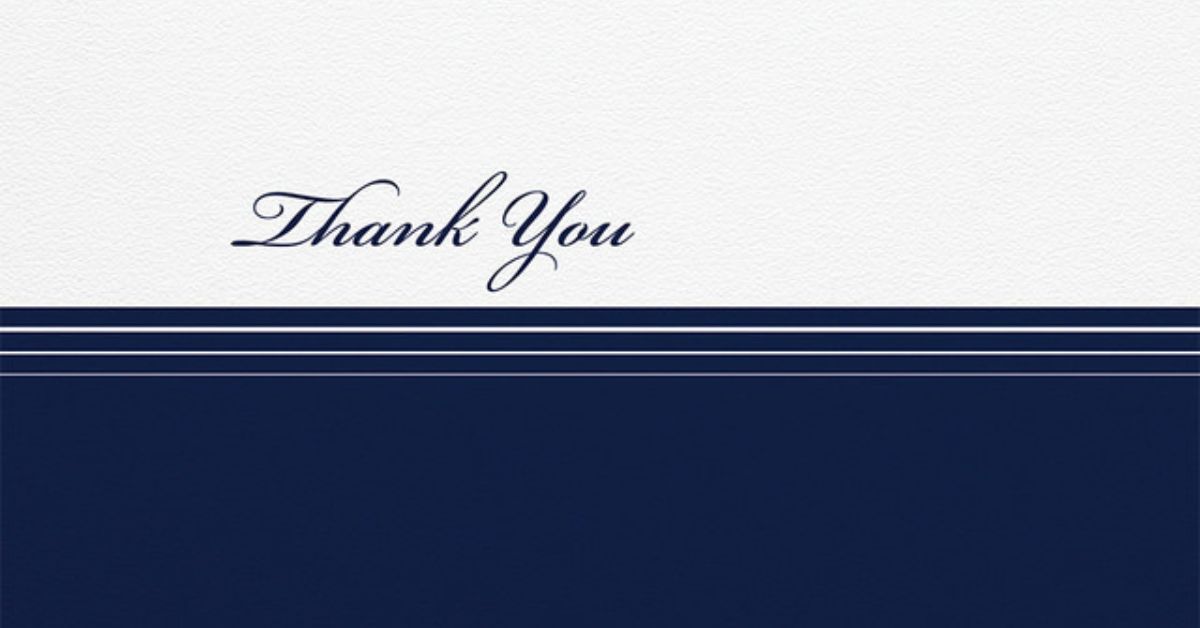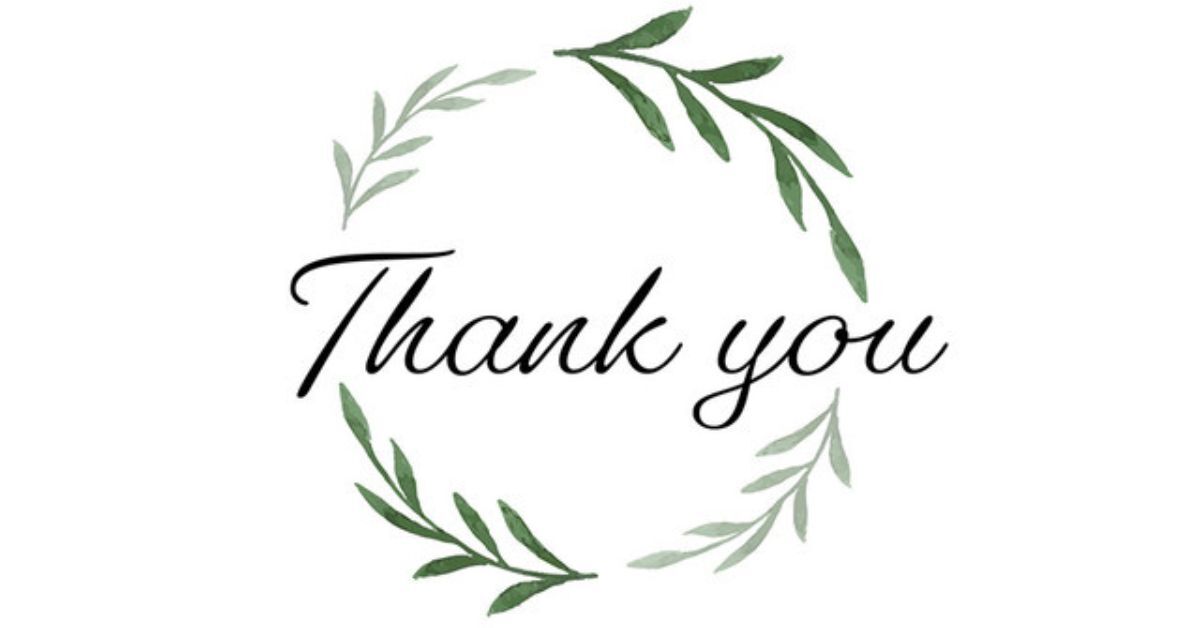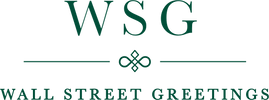What To Write in a Professional Thank-You Card
Posted by Helen Voss on 5th May 2025
Sending a thank-you card is a simple yet powerful gesture. In the professional world, these notes of gratitude can have a huge impact, fostering trust, strengthening relationships, and demonstrating a commitment to collaboration.
But what exactly should you write in a professional thank-you card to make it meaningful and effective? This guide will outline how to compose a thank-you card, including examples for different professional scenarios.
Why Thank-You Cards Are Key in Business
Thank-you cards are valuable for business relationships, as they demonstrate thoughtfulness and professionalism. Expressing genuine gratitude shows your appreciation and respect for the recipient’s contributions, fostering goodwill and mutual trust. These cards strengthen connections by adding a personal touch that sets your brand apart in a highly competitive and often impersonal business landscape.
Beyond conveying gratitude, thank-you cards also signal attention to detail and high standards, further solidifying your credibility in the business world. Whether thanking a client, colleague, or trusted vendor, this simple gesture can enhance rapport and nurture long-term partnerships. Even in an age dominated by digital communication, a handwritten card demonstrates sincerity and effort that resonates deeply with recipients.
Components of a Thank-You Card Message
Crafting the perfect thank-you message starts with understanding its essential components. Each section contributes to a cohesive, polished note for a professional connection.
Greetings
Start your card with a tailored, professional greeting. Mention the recipient’s name to make the message feel personal and genuine. Avoid generic openings like “Dear Sir/Madam,” which can sound impersonal. A simple but specific salutation, such as “Dear Mr. Johnson,” or “Hi Sarah,” adds warmth to your correspondence.
Acknowledgements
Next, express your gratitude with a heartfelt acknowledgment of the recipient’s actions. Thank them for their time, effort, or thoughtfulness. Be specific about what the recipient did or contributed, and explain how it impacted you or the organization positively.
Personal Details
Within your professional thank-you message, include a brief personal detail that relates directly to your connection with the recipient. This small touch adds sincerity to your note and shows that it was thoughtfully written rather than formulaic. For example, referencing a specific project, event, or decision helps personalize the message.
Forward-Looking Statements
End your message with a forward-looking statement that encourages continued engagement and leaves room for future opportunities. For example, you could mention an exciting upcoming collaboration or express your hope to work together again on another project. This portion of the card sets the tone for future interactions, keeping the conversation open and positive.
Closings and Sign-Offs
Choose a closing that matches the tone of your message. For formal or professional messages, “sincerely” or “best regards” are appropriate options. If you have a more personal relationship with the recipient, feel free to use a casual closing, such as “warmly” or “cheers.” Don’t forget to include your name in your sign-off so the recipient knows who the message is coming from.

Examples of Professional Thank-You Card Messages
While identifying parts of a thoughtful message can be insightful, let’s take things further with examples of effective messages for different scenarios.
For a Client’s Business
“Dear [Client’s Name],
Thank you for choosing [Company Name] for your [specific service or product]. We greatly value your trust in us and are committed to providing the highest level of service. Please don’t hesitate to reach out if there’s anything further we can do to support you. Thank you again for allowing us to be a part of your success.
Warm regards,
[Your Name]”
This message is compelling because it highlights the client’s trust, reiterates your availability for continued support, and reinforces the value of your working relationship.
For a Team Member’s Collaboration
“Dear [Team Member’s Name],
“I truly appreciate the effort and collaboration you put into [specific project or achievement]. Your advice and expertise were invaluable, and I’m so grateful to have you on the team. I look forward to collaborating with you again soon!
Best regards,
[Your Name]”
This note acknowledges the team member’s specific contributions and skill set while setting a positive tone for ongoing collaboration.
For a Mentor’s Guidance
“Dear [Mentor’s Name],
I wanted to express my heartfelt thanks for the advice you’ve shared with me over the past few months. Your mentorship has been incredibly impactful, helping me grow both personally and professionally. I’m truly fortunate to have had the opportunity to learn from you. Thank you again for your support and encouragement.
Sincerely,
[Your Name]”
This message is impactful because it expresses gratitude for specific support and highlights how this individual’s guidance made a tangible difference.
For a Customer’s Referral
“Dear [Customer’s Name],
I want to personally thank you for referring [New Client’s Name] to us. Your recommendation brought us an exciting new opportunity, and we’re grateful for your trust in our services. Please don’t hesitate to reach out if there’s anything we can do for you.
Kind regards,
[Your Name]”
This message is concise yet efficient because it specifically acknowledges the referral and assures the customer of your ongoing commitment to them.
For a Prospect’s New Connection
“Dear [Contact’s Name],
It was a pleasure meeting you at [specific event/location]. Thank you for taking the time to share your insights and experiences with me. I found our conversation incredibly valuable. I look forward to staying in touch and exploring ways we can work together in the future.
Best,
[Your Name]”
This note strengthens a budding professional relationship while keeping the door open for future engagement.
What To Consider When Writing a Thank-You Card
Every professional thank-you card should be thoughtfully crafted with careful attention to tailor your message to the recipient’s role or relationship to you. Choose a tone that balances warmth with professionalism, reflecting genuine gratitude and business decorum. Keep the message concise yet meaningful, focusing on specific actions or contributions you’re thankful for.
Align your language and presentation with your professional brand, maintaining a consistent tone, style, and branding elements as applicable. Above all, ensure your message feels personal and sincere, as authenticity is key to leaving a lasting positive impression.

Express Gratitude Through Wall Street Greetings
A professional thank-you card is a simple yet meaningful way to nurture relationships in business. No matter who you’re expressing gratitude toward, a carefully crafted note can make a lasting impression and enhance your reputation. Now that you know what to write in a professional thank-you card, you can craft cards that reflect sincerity, professionalism, and gratitude.
Wall Street Greetings offers a wide range of thank-you cards for clients and other professional connections designed for the financial services industry. With sophisticated designs and personalization options, you can find the perfect card to express your appreciation and leave a positive impact. Start making a difference today with thoughtful, personalized notes.



